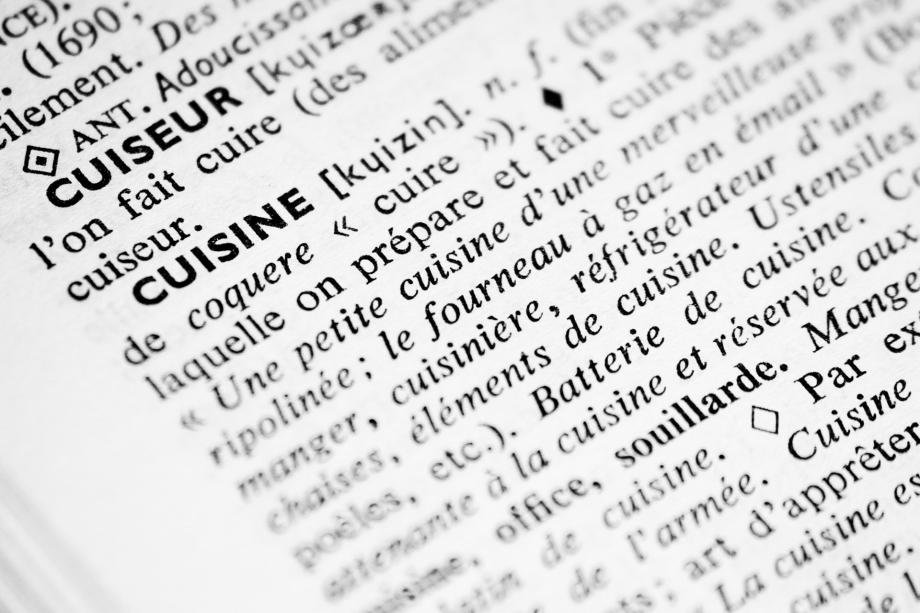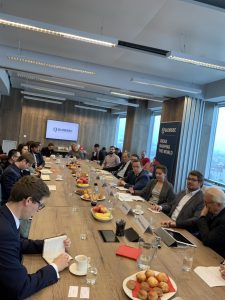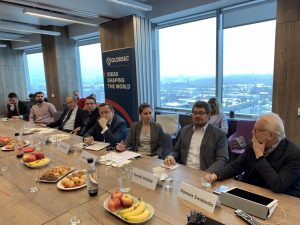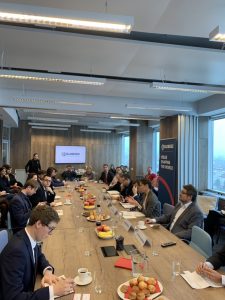Think Tanks Are Like a Good Restaurant

Think tanks should operate along the same lines as a Michelin-starred restaurant. These tend not have vast menus and shy away from serving big portions on equally big plates (think long reports). Instead, the world’s best restaurants serve small portions of high-quality food on suitably modest crockery (short, succinct and concise policy papers). To make an impact, a think tank’s outcomes and deliverables should be in a “digestible” format and consist of a set of recommendations that not only set goals but also show how to get there. As good service is key for a well-functioning restaurant, good timing is crucial for the work of any think tank. In short, we need to focus more on quality over quantity and say more with less words, at the right time.
These were just some of the points raised by participants in a discussion entitled “Why Facts and Think Tanks Matter” organised by GLOBSEC and the Think Tanks and Civil Societies Program University of Pennsylvania. This unique seminar was one of a series of coordinated events organised by 330 institutions and civil society organisations in over 80 countries around the world.
Our participants agreed the primary focus of think tanks is to offer independent analysis of government policies and conduct research. It was also noted, however, that many think tanks have shifted their roles in recent times and transformed into PR agencies for different bodies while others became business entities or organisations focused on development aid. Participants were nevertheless quick to acknowledge that, as opposed to government institutions, academics or journalists, think tanks still retain the distinctive role of being controversial and provocative by raising issues which would not otherwise be addressed by policymakers. Put simply, it’s a think tank’s ‘privilege’ is to ask straightforward questions and propose out-of-the-box solutions.
A lack of funds available for work of all think tanks and from that stemming increased competition emerged as main causes of concern for think tanks today. Both were rightly identified as challenges that put the continuation of projects and other research activities at risk. To overcome this, participants suggested that collaboration should come before competition.
GLOBSEC’s From Criminals to Terrorists and Back? is a case in point. This consortium of institutions from 11 European countries was held up by participants as proof that cooperation leads to outcomes that are more credible and with bigger impact. Another example of smooth cooperation is Think Visegrad – V4 Think Tank Platform, a network for structured dialogue on issues of strategic regional importance.
Conversely, increased collaboration with governments often result in skepticism and public distrust in think tanks. Similarly, to be seen as overly reliant on some corporate donors or too close to one institution is easily translated into decreased independence. Our participants agreed that more transparency is required, as well as consistency in making the case for the role and importance of think tanks.
Finally, participants talked about a level of cooperation between think tanks and the media which should result in the translation of the latter’s work into a language which is understandable to a wider audience. This means producing shorter versions of policy recommendations and diversifying how content is delivered. Lastly, partnering with media could help to fight fake news by identifying and uncovering false agencies or NGOs in the online space.
Here's a few images from yesterday's event.




Associate Fellow, Centre for Global Europe